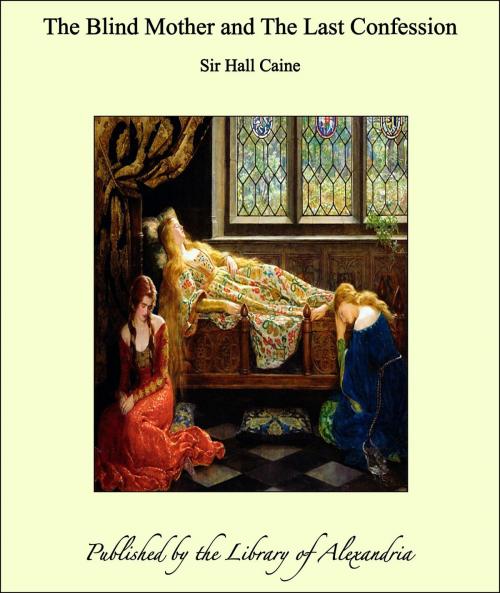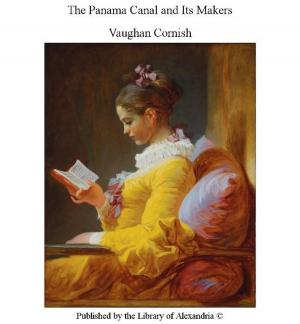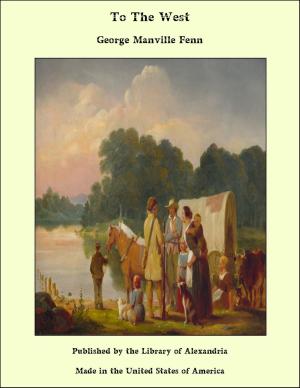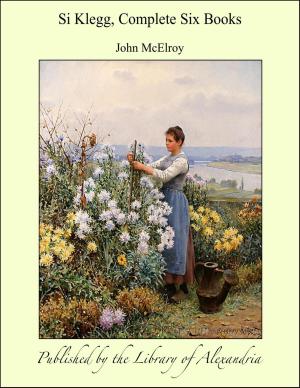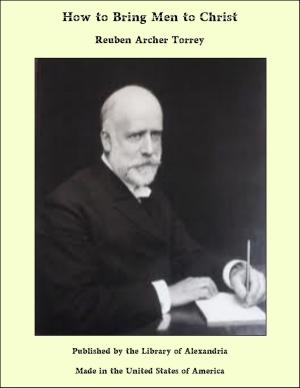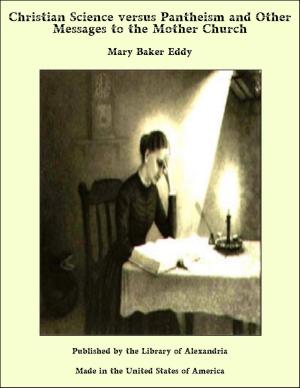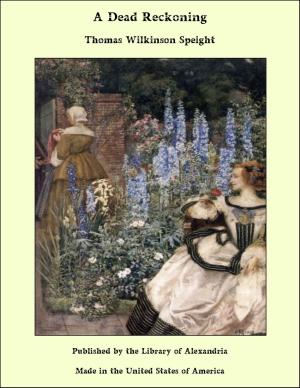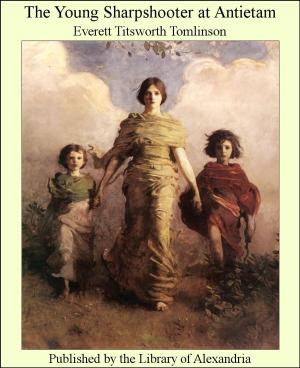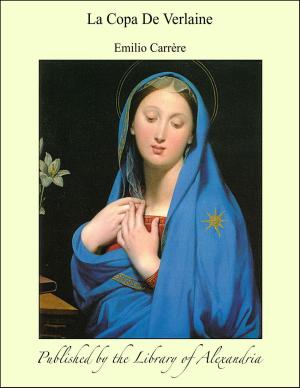The Blind Mother and The Last Confession
Nonfiction, Religion & Spirituality, New Age, History, Fiction & Literature| Author: | Sir Hall Caine | ISBN: | 9781465554567 |
| Publisher: | Library of Alexandria | Publication: | March 8, 2015 |
| Imprint: | Language: | English |
| Author: | Sir Hall Caine |
| ISBN: | 9781465554567 |
| Publisher: | Library of Alexandria |
| Publication: | March 8, 2015 |
| Imprint: | |
| Language: | English |
The Vale of Newlands lay green in the morning sunlight; the river that ran through its lowest bed sparkled with purple and amber; the leaves prattled low in the light breeze that soughed through the rushes and the long grass; the hills rose sheer and white to the smooth blue lake of the sky, where only one fleecy cloud floated languidly across from peak to peak. Out of unseen places came the bleating of sheep and the rumble of distant cataracts, and above the dull thud of tumbling waters far away was the thin caroling of birds overhead. But the air was alive with yet sweeter sounds. On the breast of the fell that lies over against Cat Bell a procession of children walked, and sang, and chattered, and laughed. It was St. Peter's Day, and they were rush-bearing; little ones of all ages, from the comely girl of fourteen, just ripening into maidenhood, who walked last, to the sweet boy of four in the pinafore braided with epaulets, who strode along gallantly in front. Most of the little hands carried rushes, but some were filled with ferns, and mosses, and flowers. They had assembled at the schoolhouse, and now, on their way to the church, they were making the circuit of the dale. They passed over the road that crosses the river at the head of Newlands, and turned down into the path that follows the bed of the valley. At that angle there stands a little group of cottages deliciously cool in their whitewash, nestling together under the heavy purple crag from which the waters of a ghyll fall into a deep basin that reaches to their walls. The last of the group is a cottage with its end to the road, and its open porch facing a garden shaped like a wedge. As the children passed this house an old man, gray and thin and much bent, stood by the gate, leaning on a staff. A collie, with the sheep's dog wooden bar suspended from its shaggy neck, lay at his feet. The hum of voices brought a young woman into the porch. She was bareheaded and wore a light print gown. Her face was pale and marked with lines. She walked cautiously, stretching one hand before her with an uncertain motion, and grasping a trailing tendril of honeysuckle that swept downward from the roof. Her eyes, which were partly inclined upward and partly turned toward the procession, had a vague light in their bleached pupils. She was blind. At her side, and tugging at her other hand, was a child of a year and a half—a chubby, sunny little fellow with ruddy cheeks, blue eyes, and fair curly hair. Prattling, laughing, singing snatches, and waving their rushes and ferns above their happy, thoughtless heads, the children rattled past. When they were gone the air was empty, as it is when the lark stops in its song. After the procession of children had passed the little cottage at the angle of the roads, the old man who leaned on his staff at the gate turned about and stepped to the porch. "Did the boy see them?—did he see the children?" said the young woman who held the child by the hand
The Vale of Newlands lay green in the morning sunlight; the river that ran through its lowest bed sparkled with purple and amber; the leaves prattled low in the light breeze that soughed through the rushes and the long grass; the hills rose sheer and white to the smooth blue lake of the sky, where only one fleecy cloud floated languidly across from peak to peak. Out of unseen places came the bleating of sheep and the rumble of distant cataracts, and above the dull thud of tumbling waters far away was the thin caroling of birds overhead. But the air was alive with yet sweeter sounds. On the breast of the fell that lies over against Cat Bell a procession of children walked, and sang, and chattered, and laughed. It was St. Peter's Day, and they were rush-bearing; little ones of all ages, from the comely girl of fourteen, just ripening into maidenhood, who walked last, to the sweet boy of four in the pinafore braided with epaulets, who strode along gallantly in front. Most of the little hands carried rushes, but some were filled with ferns, and mosses, and flowers. They had assembled at the schoolhouse, and now, on their way to the church, they were making the circuit of the dale. They passed over the road that crosses the river at the head of Newlands, and turned down into the path that follows the bed of the valley. At that angle there stands a little group of cottages deliciously cool in their whitewash, nestling together under the heavy purple crag from which the waters of a ghyll fall into a deep basin that reaches to their walls. The last of the group is a cottage with its end to the road, and its open porch facing a garden shaped like a wedge. As the children passed this house an old man, gray and thin and much bent, stood by the gate, leaning on a staff. A collie, with the sheep's dog wooden bar suspended from its shaggy neck, lay at his feet. The hum of voices brought a young woman into the porch. She was bareheaded and wore a light print gown. Her face was pale and marked with lines. She walked cautiously, stretching one hand before her with an uncertain motion, and grasping a trailing tendril of honeysuckle that swept downward from the roof. Her eyes, which were partly inclined upward and partly turned toward the procession, had a vague light in their bleached pupils. She was blind. At her side, and tugging at her other hand, was a child of a year and a half—a chubby, sunny little fellow with ruddy cheeks, blue eyes, and fair curly hair. Prattling, laughing, singing snatches, and waving their rushes and ferns above their happy, thoughtless heads, the children rattled past. When they were gone the air was empty, as it is when the lark stops in its song. After the procession of children had passed the little cottage at the angle of the roads, the old man who leaned on his staff at the gate turned about and stepped to the porch. "Did the boy see them?—did he see the children?" said the young woman who held the child by the hand
